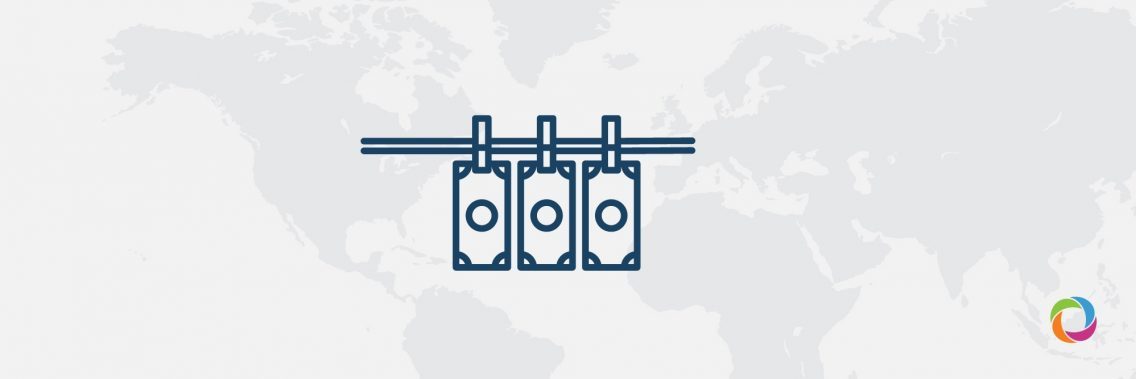Europol, the EU’s law enforcement agency, and Eurojust, the EU’s Judicial Cooperation Unit, estimate the minimum cost of fighting organized crime at EU level amounts to €210 million a year. NGOs are considered to be ‘subjects at risk’ in the money laundering framework, either as fronts for terrorist organizations that raise and transfer funds or as legitimate enterprises that indirectly support the aims of terrorist organizations. Check the opinions of some international consultants regarding this matter below.
What are the major consequences of this double-edged position for NGOs?

“Money laundering is mainly comprised of three key strata, the source, The Transit and the Destination. The key element in this illicit movement of funds remains “concealment”. The implications of this growing phenomenon are three-fold. It exposes a genuine non-governmental organization to the hijacking of its ideology or activities by the providers of these illicit funds, thereby diluting the credibility of the organization. Secondly, it appears to give governments and other regulators an opportunity to seek to fully regulate NGOs which could render them incapable of holding leaders or governments to account. Thirdly, it could affect the ease of accessing funds by NGOs as donors could be skeptical about their funds being used in furtherance of money laundering.”

“Consequences include causing a decline in attracting the type of high-caliber workforce and passionate volunteers that they rely so heavily on and wane in the trust of the communities that they seek to help. Furthermore, in countries where regulatory controls work, NGOs face sanctions or closure for breaches and non-compliance of AML controls and, unfortunately, the very poor are the most likely to be affected by this dynamic. Individuals and entities caught channeling funds towards extremist or terrorist causes risk prosecution or becoming blacklisted by charities’ monitors and potential donors such as banks. In countries that do not have a regulatory framework in place, rogue NGOs, whose mission may clash with the ideals of the country in which they operate, can pose a huge threat to security.”

“The capacity to carry out due diligence on the resources they are receiving is largely dependent on the effectiveness of the enforcement of AML/CFT laws in the respective jurisdiction. In addition, jurisdictions, whose sources of financing from co-operating partners are not using country systems but are being channeled through implementing, are at a higher risk. In my opinion, the probability of terrorist organizations infiltrating a country by establishing a partner and using such avenues to raise funds and transfer funds is high. With these scenarios in mind, the amount of money needed to fight organized financial crimes could double in the next decade if appropriate measures are not put in place.”
What should NGOs do in order to counteract this ‘risk’ status?

“NGOs should follow the FATF recommendations on preventing terrorism financing activities. Countries must review the adequacy of their laws and regulations concerning the entities likely to be abused for terrorist financing purposes and, among these, NGOs appear to be particularly vulnerable. Each country should ensure that they cannot be improperly used. Observing the establishment of new NGOs scattered around the world could represent an important indicator to prevent the threat, as well as the possibility of having a tax regime that regulates NGOs in a clearer way and the possibility of a universally recognized code of ethics which could set standards and strengthen transparency. NGOs should have a more transparent shareholding structure so as to easily identify the beneficial owner, present a true and fair balance sheet and ensure transparent traceability of their operations. Funding through cash donations leaves many doubts about the final destination of the funds.”

“The nation has established amendments to the NGO regulations of 2018 which has different provisions requiring that NGOs that have not yet been registered to initially familiarize themselves with the amendments so that they can adjust and fit. The NGOs should have a duty to ensure that their accounts are clean and achieve a certain level of transparency. Every element of accounting information should be available to every stakeholder, including the general public. NGOs should be accountable to the community they serve.”

“Instituting a core Code of Conduct and integrity principles starting from the top down can help NGOs to sustain their future and become more effective in whatever efforts they promote. It should be noted that increased international donor and funding organizations are requiring NGOs and other entities with which they work to have in place integrity policies and controls, including AML/CFT. For instance, the Global Environment Fund, the Green Climate Fund, and the Asian Infrastructure Investment Bank now require their counterparties to demonstrate that such policies and controls are in place.”
Check all the NGOs available on DevelopmentAid page here.

